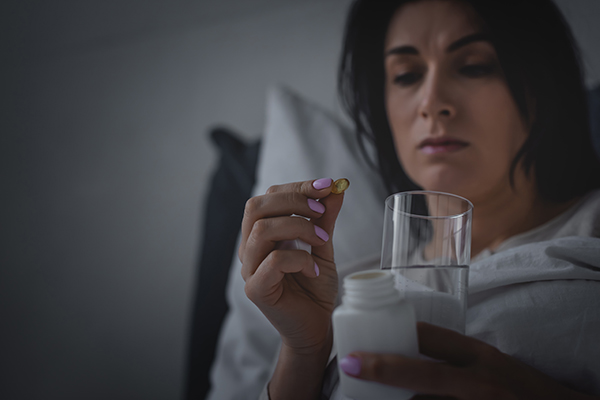On occasion, everyone has a somewhat difficult time falling asleep. Maybe the mind is wide awake and racing, mulling over all of the tasks that must be accomplished the next day. Maybe someone watches a particularly scary movie and has to sleep with the lights on. From time to time, we all experience a disrupted sleep cycle – but most of us can catch up on sleep the following night, feeling renewed and refreshed the next morning. Some people, however, struggle with diagnosable sleep-related disorders – like insomnia. These people always feel tired and fatigued – never seem to get enough sleep, which severely compromises the way they function on a day-to-day basis. Most sleep disorders are determined when all (or most) of the following four signs are present:
- The individual has a difficult time falling asleep and staying asleep
- The individual is tired throughout the day, often finding it difficult to stay awake
- The individual is prone to engaging in unusual or abnormal behaviors that interfere with sleep (like sleepwalking, for example)
- The individual experiences a disrupted circadian rhythm that leads to a compromised sleeping pattern
If you have ever been diagnosed with a sleep-related disorder, you have likely undergone treatment – which, more often than not, includes a prescription for common sleeping medication. Some of the more commonly prescribed sleeping pills include Ambien (the brand name for the drug zolpidem tartrate), Halcion (triazolam), Lunesta (eszopiclone), and Restoril (temazepam). While these medications can be extremely beneficial and effective when taken as prescribed, they can also be addictive, and can easily lead to substance dependency when abused. 
Sleeping Pill Withdrawal is Serious
If you have ever been diagnosed with a sleep-related disorder, you have likely undergone treatment – which, more often than not, includes a prescription for common sleeping medication. Some of the more commonly prescribed sleeping pills include Ambien (the brand name for the drug zolpidem tartrate), Halcion (triazolam), Lunesta (eszopiclone), and Restoril (temazepam). While these medications can be extremely beneficial and effective when taken as prescribed, they can also be addictive, and can easily lead to substance dependency when abused.
What Does Prescription Sleeping Pill Detox Look Like?
One of the most common symptoms associated with sleeping pill addiction is the onset of withdrawal symptoms when use is stopped abruptly. If you decide to be under the care of medical professionals during your detox, then you have nothing to worry about at the detox process will be as comfortable as possible. Some of the symptoms most commonly associated with sleeping pill withdrawal include:
- Profuse sweating
- Nausea, vomiting, and diarrhea
- Intense stomach pains
- Body tremors and convulsions
- Rapid heart rate
- Extreme anxiety
- Panic attacks and hyperventilation
- Insomnia and other sleep-related issues
- Depression and suicidal ideation
There are ways in which to effectively avoid the more severe symptoms associated with sleeping pill withdrawal. If you are looking to safely stop taking sleeping pills, your best option is slowly tapering off of the medication in a medically monitored detox setting.
You Can Safely Get Off Addictive Sleeping Pills
If you are interested in safely stopping sleeping medication use or abuse, take the following steps. Remember that you cannot safely stop sleeping pill abuse on your own – professional help will always be necessary.
- Reach out for help as soon as possible. Addiction is a chronic and progressive disease, and the symptoms associated with sleeping pill abuse will only continue to get worse over time. As soon as you recognize that help is necessary, make the phone call.
- Check yourself into a medically monitored detox facility if you are unable to quit on your own and if you have been experiencing symptoms of withdrawal when you attempt to cut back on your dose or quit entirely.
- Once you have been physically stabilized in a medical detox facility, enter into the next appropriate level of clinical care. The team at the detox will help you develop an aftercare plan and will point you in the right direction. In most cases, this will either be inpatient treatment or intensive outpatient treatment, depending on the severity of the substance abuse disorder.
Prescription Sleeping Pill Addiction Treatment
At Evoke Wellness Miramar, we help men and women of all ages and walks of life safely overcome sleeping pill addiction through comprehensive and closely monitored treatment programs in South Florida. Attempting to quit sleeping pills cold turkey can be extremely dangerous – even life-threatening in extreme cases. If you or someone you love has been struggling with a sleeping pill addiction, committing to a multi-phased program of clinical care is important – one that begins with medical detox and progresses to inpatient treatment once physical stabilization has been achieved. To learn more about Evoke Wellness at Miramar or to get started with our simple admissions process, all you have to do is pick up the phone and give us a call.


